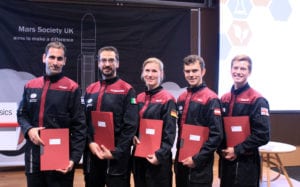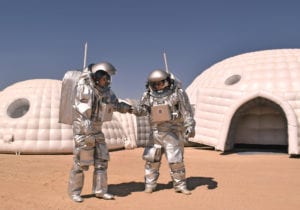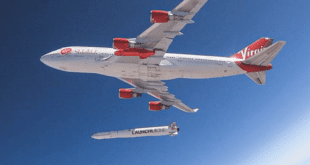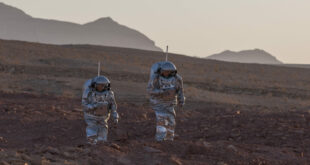
On 4th November 2019 the Austrian Space Forum´s (OeWF) new analog astronaut class of 2019 concluded their challenging training at a formal ceremony at the London Institute of Physics. The graduation was one of the highlights of this year’s European Mars Conference that is suitably themed “Arrive, Survive and Thrive”. The new analog astronauts now complete a total of 13 individuals. The 2 female and 11 male analog astronauts come from Austria, Germany, Greece, Israel, Italy, Portugal, Spain, The Netherlands and the United Kingdom. Currently the Austrian Space Forum is the only organization worldwide to conduct this challenging and highly specialized training.
As the analog astronauts now have successfully completed their training they are qualified to take part in the OeWF´s next Mars analog mission that will take place in Israel in October 2020. However, only 6 of the now 13 analog astronauts will go to the Negev desert to test equipment and working procedures for future human Mars exploration.
What is Analog Research?
“Analog research is designed to test concepts, working procedures and equipment to find the weak spots so the actual mission can be realized as safely as possible,” says Dr. Gernot Grömer, Administrative Director of the Austrian Space Forum and continues,“ the purpose of simulating a Mars-mission on Earth is to prepare for future crewed missions on the Red Planet. To perform the experiments, the OeWF is one of only five research groups worldwide that has developed a prototype spacesuit which is worn by the OeWF’s analog astronauts during their mission.”
International Team and Cooperation
What is an Analog Astronaut?

The Austrian Space Forum’s analog astronauts are carefully selected experts who are trained to execute most of the science field activities while wearing the OeWF´s spacesuit prototype. They also act as a public face and represent the mission as STEM-ambassadors for media and educational activities. Analog astronauts conduct spaceflight-simulations in Mars-like regions on earth as well as test and evaluate workflows and human factors pertinent to human Mars exploration. Their training includes planetology, geology, astrobiology, media training, stress management, emergency care, fitness and above all operating the spacesuit prototype.
The OeWF is one of only five institutions worldwide which has so far developed such a prototype. It emulates the restrictions of an actual planetary surface spacesuit, like weight, resistance or limited sensory input, whilst protecting the analog astronaut from the environment and keeping him/her alive. An elaborate human-machine interface, including a sensor network and specifically developed software assist the analog astronaut during planetary surface operations. The 45kg heavy prototype has been developed to optimize interactions with other (robotic) components, like a rover, and minimize the risk of human contamination.





